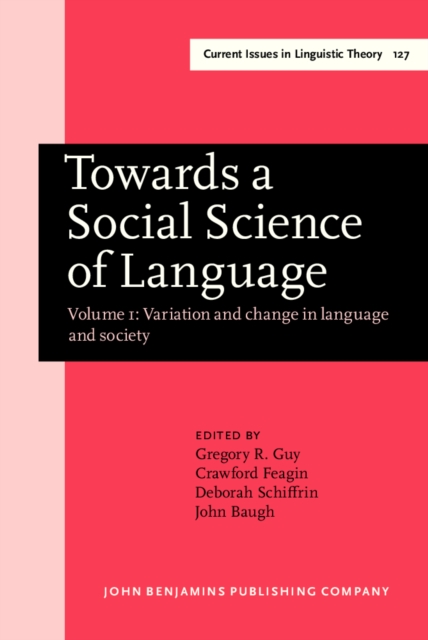
Towards a Social Science of Language : Papers in honor of William Labov. Volume 1: Variation and change in language and society PDF
Edited by Gregory R. (York University, Ontario) Guy, Crawford (Georgetown University, Washington) Feagin, Deborah (Stanford University) Schiffrin, John (Stanford University) Baugh
Part of the Current Issues in Linguistic Theory series
Description
This is a two-volume collection of original research papers designed to reflect the breadth and depth of the impact that William Labov has had on linguistic science.
Four areas of 'Labovian' linguistics are addressed: First is the study of variation and change; the papers in sections I and II of the first volume take this as their central theme, with a focus on either the social context and uses of language (I) or on the the internal linguistic dynamics of variation and change (II).
The study of African American English, and other language varieties in the Americas spoken by people of African descent and influenced by their linguistic heritage, is the subject of the papers in section III of the first volume.
The third theme is the study of discourse; the papers in section I of the second volume develop themes in Labovian linguistics that go back to Labov's work on narrative, descriptive, and therapeutic discourse.
Fourth is the emphasis on language use, the search for discursive, interactive, and meaningful determinants of the complexity in human communication.
Papers with these themes appear in section II of the second volume.
Information
-
Download - Immediately Available
- Format:PDF
- Pages:436 pages
- Publisher:John Benjamins Publishing Co
- Publication Date:19/08/1996
- Category:
- ISBN:9789027276292
Information
-
Download - Immediately Available
- Format:PDF
- Pages:436 pages
- Publisher:John Benjamins Publishing Co
- Publication Date:19/08/1996
- Category:
- ISBN:9789027276292










